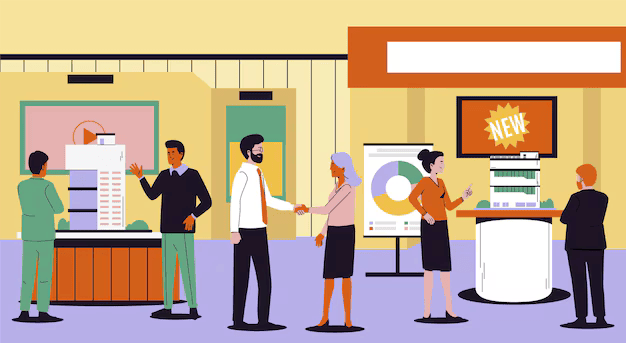The High-Stakes World of International Sourcing: Why These Questions Matter (And Why You Shouldn't Wing It)
Imagine standing in a bustling trade fair, surrounded by potential suppliers, with millions of dollars of potential business hanging in the balance. Your palms are sweaty, knees weak, arms are heavy (there's vomit on your sweater already, mom's spaghetti). One wrong move, one overlooked detail, and your importing dreams could crumble faster than that protein bar in your bag that's been there since the last trade fair.
But what if you had a secret weapon? A strategic list of questions that separates the professional suppliers from the amateurs? Think of it as your International Business Tinder—swipe right on quality manufacturers, swipe left on those who can't tell you their MOQ without checking with "the boss" (who is mysteriously always on lunch break).

The Landscape of Global Importing in 2025 (It's a Jungle Out There, and the Animals Have Spreadsheets)
The global supply chain has never been more complex. With geopolitical tensions, ongoing trade challenges, and rapidly evolving manufacturing technologies, importers need to be more strategic than ever. This guide isn't just a list of questions—it's your roadmap to successful international sourcing, your GPS through the wilderness of potential manufacturing disasters.
Remember: In the world of international trade fairs, there are two types of importers—those who ask the right questions, and those who end up with a container full of products that vaguely resemble what they ordered (if you squint and use your imagination).
10 Must-Ask Questions for Your Next Trade Fair Supplier Meeting (Or How to Make Suppliers Realize You're Not Just Another Clueless Newbie)
1. Price Precision: Beyond the Surface Number (Because "How Much?" Is What Amateurs Ask)
- "What's your most competitive unit price for orders of [specific quantity]?" (Not: "How much is this thingy?")
- Confirm pricing for full container loads, because half-empty containers are like half-empty bags of chips—disappointing and expensive
- Verify you're speaking with a decision-maker who can actually give you real prices, not the "I'll have to ask my manager" person (they have no power here)
Pro Tip: When they give you a price, look slightly disappointed but not devastated—like you just found out your favorite coffee shop is out of oat milk. It works surprisingly well.
2. Quantity Flexibility: Testing Supply Chain Resilience (Or: Finding Out If They'll Still Love You When You're Small)
- Explore minimum order quantities (MOQs) and whether they'll still take your calls if you can't order 10,000 units
- Discuss scalability of production (can they handle it when your TikTok goes viral and you suddenly need 100,000 units yesterday?)
- Understand their capacity to meet your long-term needs (or if they'll dump you for a bigger client faster than a bad Tinder date)
Reality Check: If they claim they can make "any quantity," they're either desperate or lying. Neither is good.
3. Lead Time Intelligence (Because Time Is Money, and Waiting Is Bankruptcy)
- Get exact production and shipping timelines—down to the day, not "about one month" (which in supplier language can mean anything from 3 weeks to the next geological era)
- Discuss potential delays and mitigation strategies (other than them ignoring your increasingly panicked emails)
- Compare their speed against market standards (is their "fast delivery" actually glacial by industry norms?)
Decoder Ring: When they say "30 days," mentally translate to "45-60 days" and you might be pleasantly surprised (or just correctly prepared).

4. Reference Reality Check (Or: "Who Else Has Survived Working With You?")
- Request verified export history to countries like yours (not just their cousin's shop down the street)
- Ask for direct customer reference contacts that aren't their brother-in-law
- Probe for a proven track record in your target market (selling successfully to Japan doesn't mean they understand FDA requirements)
Sneaky Strategy: Say, "Our logistics partner needed to know which other companies you've shipped to in our region." Sometimes indirect questions get more honest answers.
5. Quality Control: Your Non-Negotiable Safeguard (Unless You Enjoy Midnight Panic Attacks About Defective Products)
- Demand details about quality management processes that go beyond "we check everything, very good quality"
- Discuss options for independent quality inspection (their cousin with "good eyes" doesn't count)
- Verify compliance with international standards (ISO, etc.)—and ask to see the actual certificates, not just the logo they've copied onto their business card
Warning Sign: If they seem offended by quality control questions, run away faster than from someone sneezing uncontrollably at the height of a pandemic.
6. Payment Terms: Financial Strategy (Or: How Not to Send Your Money on a One-Way Trip)
- Negotiate flexible payment structures that don't involve you remortgaging your house for a deposit
- Discuss risk mitigation options that don't end with "just trust us" (the business equivalent of "what could possibly go wrong?")
- Understand standard industry payment protocols (because 100% upfront is not "standard" no matter what they tell you)
Money Saving Tip: The phrase "Our company policy limits initial deposits to 30%" can work wonders, even if your "company policy" was established 30 seconds ago.

7. Regulatory Compliance: Avoiding Legal Landmines (Because Orange Jumpsuits Aren't a Good Look on Anyone)
- Verify export licensing—can they legally send you those products, or are you unwittingly becoming an international smuggler?
- Confirm they understand country-specific import regulations (blank stares when you mention compliance are not a good sign)
- Check documentation readiness—do they actually know what a Certificate of Origin is, or do they think it's a coffee grading?
Nightmare Prevention: Nothing says "business disaster" quite like having your entire shipment held at customs because someone thought product certifications were "optional suggestions."
8. Transparency in Production (Or: Can You See What's Happening, or Is It All Happening Behind a Mysterious Curtain?)
- Establish clear communication protocols (something more sophisticated than "we'll call you when it's done")
- Confirm factory visit possibilities before you book a surprise trip halfway across the world
- Set up real-time production tracking that doesn't involve you sending pleading WhatsApp messages at 3 AM your time
Reality Check: If they're hesitant about factory visits, they're either not a real factory or not a factory you want to work with (or possibly running a secret superhero headquarters, but probably not).
9. Risk Management Guarantees (Because Hope Is Not a Strategy)
- Clarify product standard warranties that aren't written in disappearing ink
- Understand order cancellation policies (can you bail if they miss deadlines by months?)
- Establish compensation mechanisms for when things go sideways (and in international trade, things always find creative ways to go sideways)
Subtle Test: Watch their facial expression when you mention "quality guarantees." Confidence is good; nervous laughter is concerning; visible sweating is your cue to leave immediately.
10. Communication Effectiveness (Because Nothing Says "Business Nightmare" Like Playing International Telephone)
- Identify your primary contact person (and confirm they actually work there and haven't just wandered in for the free trade fair snacks)
- Verify language capabilities beyond nodding and saying "no problem" to everything you say
- Understand decision-making authority levels (can your contact actually solve problems, or are they just a human email forwarding service?)
Communication Red Flag: If your supplier contact introduces themselves as "Any name is fine" or "Just call me anything," prepare for identification challenges in your future.

Pro Tips for Trade Fair Success in 2025 (When Looking Professional Matters More Than Actually Feeling Professional)
Technology Integration (Because Paper Is So Last Century)
- Use translation apps for real-time communication, but be prepared for hilarious mistranslations that could accidentally commit you to buying 10,000 rubber ducks instead of silicon components
- Leverage digital business card exchanges, making sure your title sounds important enough (Strategic Procurement Executive sounds better than Guy Who Buys Stuff)
- Prepare digital portfolios and requirement documents that make you look organized even if your hotel room currently resembles a disaster zone
Strategic Approach (Or: How to Avoid Looking Like a Lost Tourist)
- Research suppliers beforehand, allowing you to drop casual knowledge bombs like, "I noticed your new production facility in Guangzhou is fully automated now"
- Visit multiple vendor booths, even if the first one offers you "special price, just for you, best friend rate"
- Take comprehensive notes because your memory after 12 hours of trade fair conversations is about as reliable as budget airline schedules
- Use comparison matrices, which is a fancy way of saying "spreadsheets that make you look like you know what you're doing"
The Future of Importing: Beyond the Trade Fair (Crystal Ball Not Included)
Emerging Trends That Sound Like Science Fiction But Are Actually Happening
- AI-powered supplier matching, which works like dating apps but with fewer catfish and more catalogs
- Blockchain for supply chain transparency, because nothing says "we have nothing to hide" like immutable distributed ledgers
- Sustainable and ethical sourcing priorities, because saving the planet and making money aren't mutually exclusive in 2025
Final Advice: Your Importing Roadmap (Or: How to Avoid Becoming a Business School Cautionary Tale)
- Prepare thoroughly (winging it is for birds, not business)
- Ask strategic questions (the kind that make suppliers sit up straighter)
- Verify information (trust but verify—emphasis on the verify part)
- Consider professional import agents (sometimes outsourcing your anxiety is the best strategy)
- Trust but always verify (so important we're saying it twice)
Pro Tip: In 2025's global market, relationships matter more than ever. Build genuine connections, not just transactional interactions. Remember: The supplier who actually answers your panicked weekend emails about shipping delays is worth their weight in gold.
Call to Action (Because Every Article Needs One)
Ready to transform your importing strategy from "hoping for the best" to "actually knowing what you're doing"? Contact us for a consultation where we pretend not to notice your sweaty palms and deer-in-headlights expression when we ask about your supply chain strategy.
Remember: In international sourcing, the difference between success and failure isn't luck—it's preparation, strategic questioning, and having this article bookmarked on your phone.